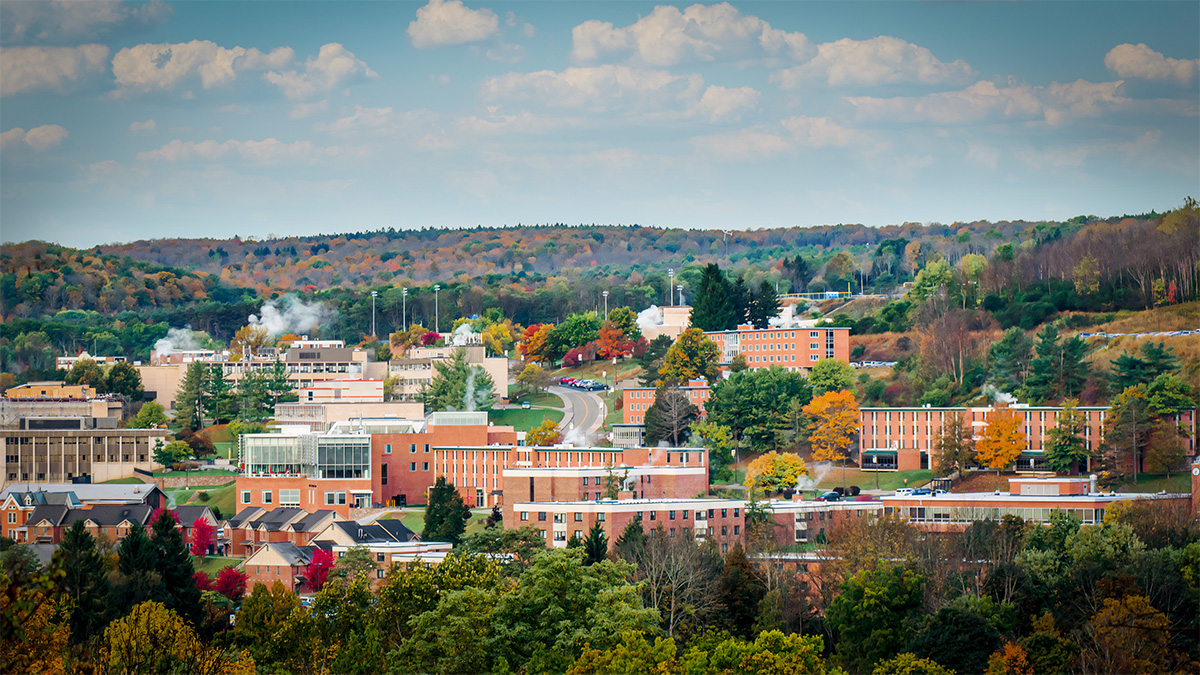
At a glance
Rex Simpson, AIA, to teach this year’s Urban Design Studio.

What began as a germ of an idea in the mind of an Alfred State architecture professor developed into a multi-faceted project involving his students, colleagues, the Appalachian Teaching Project, and the small community of Cuba, NY.
Craig R. Clark, dean, ASC School of Applied Technology, accompanied the eight students (two teams) responsible for those plans to Washington, DC, where they presented, along with 14 other colleges and universities, at the Appalachian Teaching Project Conference, dedicated to improving the quality of life of rural Appalachia (who also helped fund the trip).
Students who made the trip to DC included Joe McNinch, Conesus; Ryan Merry, North Syracuse; Eric Rosintoski, Black River; Eric Wood, Batavia; Austin Ingerick, East Rochester; Abraham Ruiz, Dunkirk; Kevin White, Duanesburg; and Jamie Wolbert, Corfu. Faculty advisers in addition to Dean and Clark included Simpson and Johnston, assistant professor.
The Urban Design Studio at Alfred State is in its 11th year of guiding students in the design of buildings in an urban setting. Through this course, students explore the principles of architectural design, planning, and technology and bridge the gap between architectural theory and practice. Previous classes have worked with residents and community leaders in the Village of Fairport and Town of Wellsville as well as the South Clinton Avenue and Susan B. Anthony neighborhoods in the City of Rochester to help them visualize proposed improvements to their communities. All research, analysis, design, and imaging is completed by students under the supervision of a team of architectural technology faculty.
The Appalachian Teaching Project (ATP) gives college students the opportunity to engage in research projects that address endemic challenges facing Appalachian communities. Led by the Consortium of Appalachian Centers and Institutes, a coalition of 15 Appalachian-studies organizations, the program includes coursework and active research on issues related to building a sustainable future for Appalachian communities. Faculty and students at each participating institution design and carry out research projects tailored to the needs of targeted communities, many of which are in economically distressed counties. Project reports are presented at a forum held each December in Washington, D.C.
The ATP is administered by the Center for Appalachian Studies and Services at East Tennessee State University. Fifteen institutions from 11 Appalachian states participated in the 2010 Appalachian Teaching Project: Alfred State College (New York); Auburn University (Alabama); Appalachian State University (North Carolina); East Tennessee State University; Emory and Henry College (Virginia); Fairmont State University (West Virginia); Frostburg State University (Maryland); Indiana University of Pennsylvania; Morehead State University (Kentucky); North Georgia College and State University; Ohio University; Radford University (Virginia); Southeast Kentucky Community & Technical College; The University of Pittsburgh at Bradford (Pennsylvania); and the University of Tennessee.
*charrette refers to any collaborative session in which a group of designers drafts a solution to a design problem.
